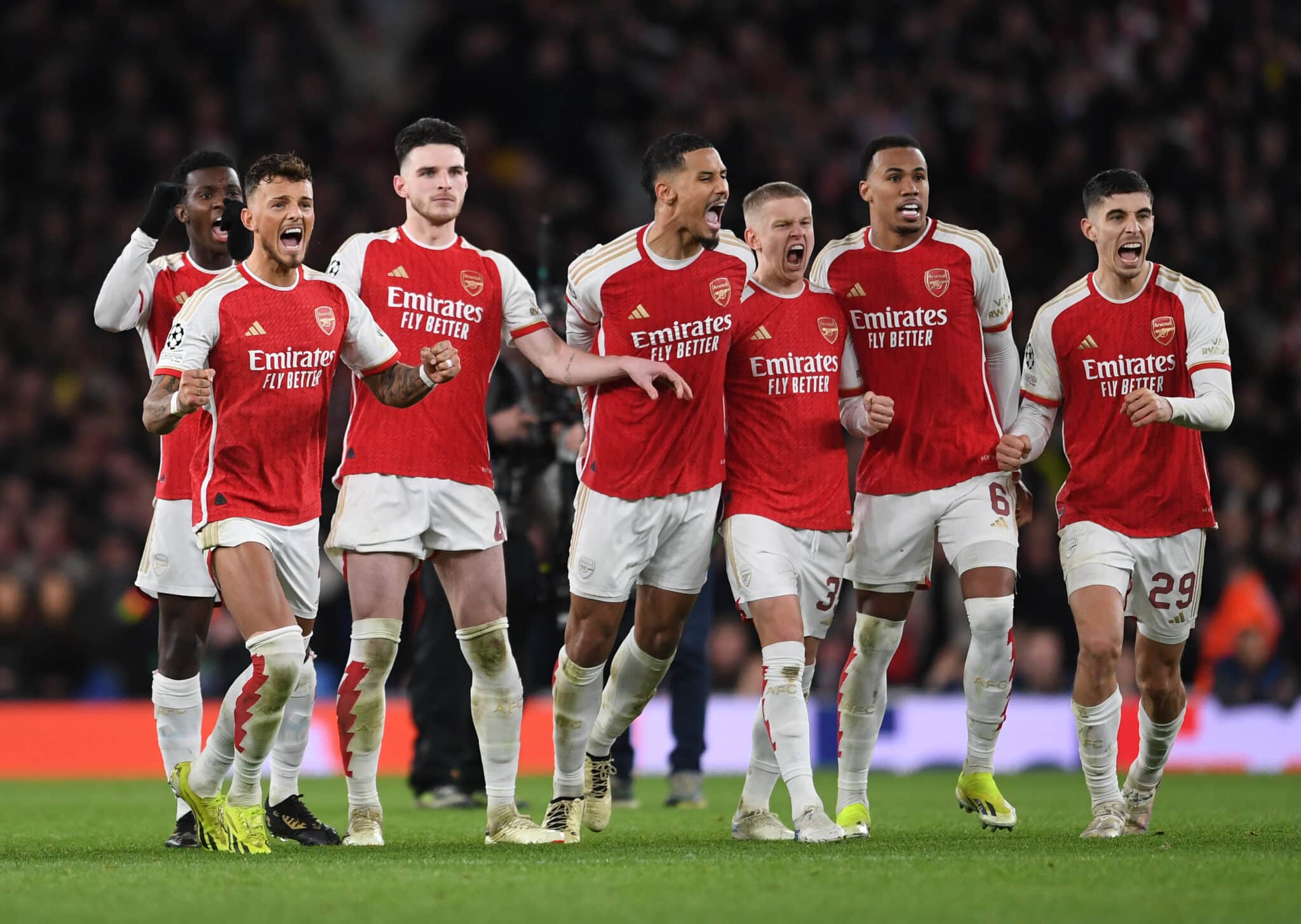> ArsenalChampions LeagueSoccer
> ArsenalChampions LeagueSoccer

Arsenal‘s recent form has raised concerns among fans and analysts alike. Despite securing a direct spot at the top 16 in the Champions League, the Gunners have faced a series of setbacks that have cast a shadow over their season. Notably, consecutive 2-0 defeats to Newcastle United in both legs of the EFL Cup semi-final have dashed their hopes of reaching the final. Additionally, an early exit from the FA Cup on January 12 at the hands of Manchester United has added to their woes. In the Premier League, Arsenal currently sits second, trailing leaders Liverpool by six points, having played one more match a gap that seems increasingly challenging to bridge given Liverpool’s current form.
Mikel Arteta has attributed the team’s struggles to physical and emotional fatigue. Following their Carabao Cup elimination, he stated, “Physically, we were tired. We have played so many games. Emotionally as well, it was a very different game to believe right there in the end that we could do it.” While Arteta’s remarks suggest a team overwhelmed by the sheer volume of fixtures, some critics believe he is merely deflecting blame from deeper issues within the squad and management.
A significant factor contributing to Arsenal’s struggles is their growing injury list. Gabriel Martinelli suffered a hamstring injury during the Carabao Cup semi-final, adding to an already concerning list of absentees that includes Bukayo Saka and Gabriel Jesus. Saka underwent hamstring surgery in December, while Jesus is sidelined for the season due to an ACL injury sustained in an FA Cup match. These injuries have severely limited Arsenal’s attacking options, forcing Arteta to rely on second-choice players who have not been able to deliver at the highest level.
Arsenal’s issues have been compounded by an underwhelming January transfer window. The club failed to secure a much-needed goalscorer, with a £40 million bid for Aston Villa‘s Ollie Watkins falling through. With no significant reinforcements arriving, the team remains vulnerable in attacking positions, a fact that has drawn criticism from supporters and pundits alike. Many argue that failing to strengthen the squad in key areas reflects a lack of ambition and a mismanagement of resources.
Beyond injuries and transfers, Arsenal’s tactical approach has come under scrutiny. Despite often dominating possession, the team has struggled to translate control into meaningful attacking opportunities. Their recent Carabao Cup semi-final defeat to Newcastle exemplified this issue, as they managed only 11 shots, with just three on target. This inefficacy in front of goal has been a recurring problem, leading to questions about Arteta’s offensive strategies. Some analysts suggest that Arteta’s rigid tactical approach stifles creativity, leaving Arsenal predictable and easy to defend against.
Another concern is Arsenal’s ability to handle pressure in big moments. The team has faltered in crucial matches, raising questions about their mental fortitude. Last season, they lost their grip on the Premier League title race in the final stretch, and similar patterns seem to be emerging again. When faced with adversity, Arsenal struggles to adapt, a worrying trend for a team with aspirations of winning major competitions.
Arteta’s comments on fatigue have sparked debate. While the congested fixture schedule and injury list provide some justification, critics argue that attributing poor performances solely to fatigue may be masking underlying tactical and managerial flaws. Teams like Manchester City and Liverpool have endured similar fixture congestion in the past yet maintained their performance levels. This raises questions about Arsenal’s squad management and whether the club has adequately prepared for the physical demands of a competitive season.
Arsenal must make crucial decisions to reverse their current slump and stay competitive in all remaining competitions. The club should consider the following steps:
The next few months will define Arsenal’s season. They are still within touching distance of the Premier League title, but only if they respond decisively to their recent struggles. If the club continues to falter, this campaign could end in disappointment. The responsibility lies with Arteta, the squad, and the management to ensure that Arsenal remains a strong contender on all fronts. The challenges are significant, but the solutions are within reach now it’s a matter of execution.